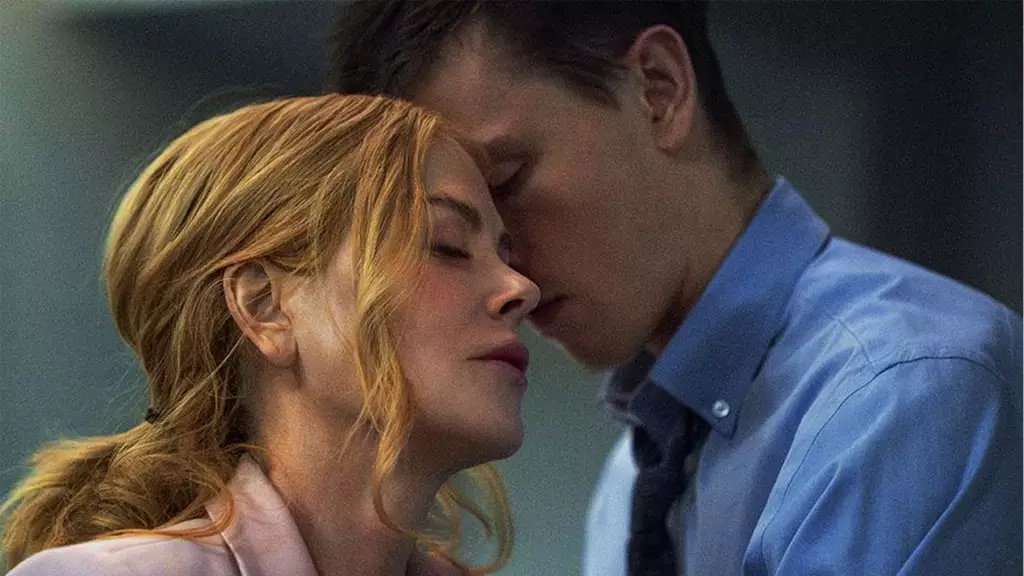In the world of cinema, the depiction of eroticism has often pivoted on the physical elements of sexual acts. However, Halina Reijn’s film “Babygirl” proposes a refreshingly new perspective. Reijn’s exploration of sexuality delves deeper into the psychological and suggestive elements that make erotic moments captivating. This article aims to dissect her creative process and the way she transforms personal experiences into an artistic narrative that provokes thought and evokes emotion.
At the heart of the film lies a pivotal scene where the protagonist, Samuel, portrayed by Harris Dickinson, orders Romy, played by Nicole Kidman, to drink a glass of milk at a bar. What may appear to be a simple act is laden with layers of symbolism—a notion that Reijn herself emphasizes. During an interview, she revealed that this scene was inspired by an actual encounter she had as a young actress. What stood out to her was not merely the act of drinking milk but rather the tension and the emotional undercurrents that such a seemingly mundane action encapsulated.
Reijn’s narrative stems from a moment of personal triumph that quickly turned into solitude. The juxtaposition of her successful performance and the subsequent mundane choices of her peers led her to a bar, where an unexpected act of bravery from a younger actor sparked a thrilling recollection. Instead of crass sexual overtures, it was an innocent, yet suggestive gesture that captured her imagination and became the foundation upon which she built her scene. This realization prompts audiences to consider how the subtleties of intimacy can often eclipse physical interactions in their emotional resonance.
Milk as an archetype is a powerful motif in Reijn’s screenplay. It evokes both innocence and primal instincts, presenting an intriguing dichotomy that invites viewers to re-evaluate their preconceptions of sexuality. Reijn explains that these connections are not purely for shock value; they are explorations into the complex terrain of human desires. The milk serves as a vehicle through which she captures the essence of surrender and vulnerability—elements that are often overlooked in more traditional portrayals of sexual encounters.
In a world where the explicit is frequently celebrated, Reijn’s choice to focus on suggestion highlights a significant aspect of human sexuality: the cerebral component. By emphasizing psychological stimulation over physical actions, she articulates that the allure of desire can often lie in what remains unsaid or unexpressed.
Reijn’s approach to defining eroticism leads her to assert that the mind plays a pivotal role in the construction of sexual tension. For her, the nuances of sexual attraction are encapsulated in imaginative scenarios, such as Romy’s entangled experience of crawling on a filthy carpet, a moment she describes as far more arousing than traditional depictions of intimacy. This perspective shifts the audience’s understanding from physicality to the psychological, reminding us that eroticism can arise from an awakening of the senses rather than just the acts themselves.
Throughout “Babygirl,” the contrast between physical and suggestive forms of intimacy underscores Reijn’s belief that real emotional connections transcend mere sexual acts. This nuanced understanding fosters a richer narrative that resonates with audiences on a deeper level, encouraging them to confront their definitions of arousal and eroticism.
“Babygirl” stands as a bold assertion that sexual experiences do not always equate to overt physicality. Halina Reijn’s unique narrative style reframes the conversation around sexuality in film, demonstrating that the essence of desire can manifest through suggestion, context, and emotional resonance. By drawing from personal experiences to craft a story that speaks to broader truths about human connection, Reijn challenges filmmakers and audiences alike to reconsider what truly constitutes eroticism. As we delve deeper into her cinematic world, we are reminded that the power of suggestion can often be the most enticing form of allure.

